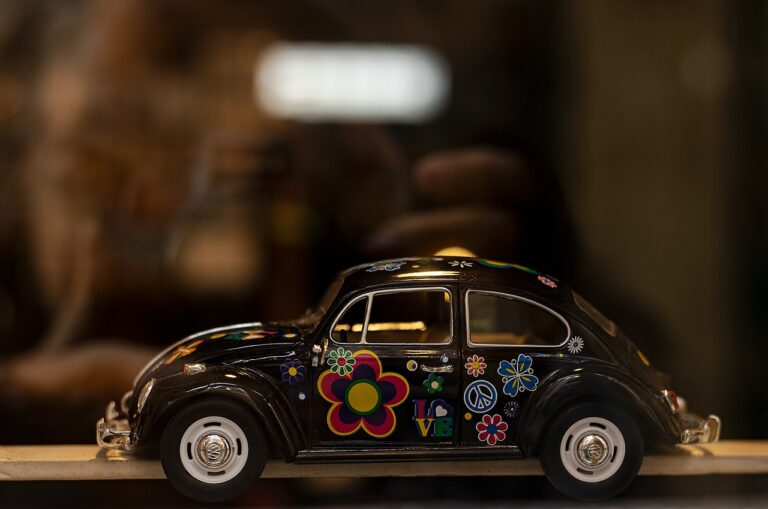Traveling for indigenous cuisine festivals: savoring traditional flavors
Welcome to a culinary journey like no other, where vibrant flavors, rich traditions, and cultural heritage converge to create a unique dining experience. Traveling for indigenous cuisine festivals allows you to immerse yourself in the authentic flavors of a region, savoring traditional dishes that have been passed down through generations. From mouth-watering street food to elaborate feasts, these festivals offer a glimpse into the heart and soul of a community, showcasing the culinary prowess and creativity of local chefs.
What is Indigenous Cuisine?
Indigenous cuisine refers to the traditional foods and cooking practices of a specific ethnic or cultural group. These culinary traditions are often deeply rooted in the history, customs, and environment of the community, reflecting a holistic approach to food that encompasses not just the flavors and ingredients but also the spiritual and social significance of the dishes. Indigenous cuisine is characterized by its use of locally sourced, seasonal ingredients, as well as its emphasis on sustainability, community, and cultural identity.
Why Travel for Indigenous Cuisine Festivals?
Traveling for indigenous cuisine festivals offers a unique opportunity to explore the culinary diversity of different cultures and regions, as well as to support local communities and food artisans. By attending these festivals, you can discover new flavors, ingredients, and cooking techniques, while also gaining a deeper appreciation for the cultural heritage and traditions that shape the culinary landscape of a place. Whether you’re a seasoned foodie or simply curious about trying new dishes, indigenous cuisine festivals are sure to delight your taste buds and expand your culinary horizons.
Top Indigenous Cuisine Festivals Around the World
1. Pueblo Chile and Frijoles Festival – Pueblo, Colorado
Each September, the city of Pueblo, Colorado, comes alive with the aroma of roasted chilies and the sizzle of frijoles (beans) at the Pueblo Chile and Frijoles Festival. This celebration of Southwestern cuisine features a variety of dishes made from Pueblo chilies, known for their distinctive flavor and heat. From green chili stew to chile rellenos, visitors can sample a wide range of spicy and savory dishes, as well as enjoy live music, cooking demonstrations, and a chili cook-off.
2. Al Dhafra Festival – Abu Dhabi, United Arab Emirates
The Al Dhafra Festival in Abu Dhabi is a vibrant celebration of Emirati culture and cuisine, showcasing traditional dishes and cooking techniques from the region. Visitors can savor authentic Emirati favorites such as camel meat dishes, traditional breads, and aromatic spices, as well as participate in cultural activities like falconry, camel racing, and traditional dances. The festival provides a rare opportunity to experience the rich culinary heritage of the UAE and learn more about the Bedouin way of life.
3. Nourlangie Rock Art Site – Kakadu National Park, Australia
Located in Kakadu National Park, the Nourlangie Rock Art Site offers a unique glimpse into the culinary traditions of Australia’s indigenous peoples, the Aboriginal Australians. The site features ancient rock art depicting scenes of hunting, gathering, and cooking, highlighting the central role of food in Aboriginal culture. Visitors can learn about traditional hunting methods, bush tucker (wild food) plants, and ceremonial foods, as well as sample indigenous dishes such as kangaroo stew, damper (bush bread), and bush tucker salads.
4. Gastronomika Festival – San Sebastiᮬ Spain
The Gastronomika Festival in San Sebastiᮠis a must-visit event for food lovers seeking to explore the rich culinary traditions of the Basque Country. The festival brings together top chefs, food artisans, and culinary experts from around the world to showcase the region’s unique flavors and ingredients. Visitors can participate in cooking workshops, tasting sessions, and gourmet tours, as well as dine at Michelin-starred restaurants and local pintxo bars. The festival offers a tantalizing mix of traditional dishes, innovative creations, and exquisite flavors that exemplify the essence of Basque cuisine.
5. Indigenous Peoples’ Festival – Oaxaca, Mexico
The Indigenous Peoples’ Festival in Oaxaca is a celebration of the diverse indigenous cultures of Mexico, featuring traditional foods, arts, crafts, and performances. Visitors can sample a wide variety of indigenous dishes such as mole (a rich sauce made with chocolate and chilies), tamales (steamed corn cakes filled with meat or vegetables), and tejate (a refreshing drink made with maize and cacao). The festival also showcases traditional cooking techniques, such as stone-grinding corn and clay cooking pots, as well as cultural events like dance performances, rituals, and storytelling sessions.
How to Prepare for an Indigenous Cuisine Festival
Attending an indigenous cuisine festival is a unique and rewarding experience that requires some preparation to fully enjoy the food, culture, and community spirit. Here are some tips to help you make the most of your culinary adventure:
1. Research the Festival
Before you go, take the time to research the indigenous cuisine festival you plan to attend. Learn about the participating chefs, food vendors, and special events, as well as the history and significance of the dishes featured at the festival. This background knowledge will enhance your appreciation of the food and culture and enable you to make informed choices about what to try and where to go.
2. Pack Accordingly
Make sure to pack appropriately for the festival, taking into account the weather, terrain, and cultural norms of the region. Wear comfortable clothing and footwear, as you may be walking and standing for long periods while exploring the festival grounds. Bring a reusable water bottle, sunscreen, and a hat to stay hydrated and protected from the sun, as well as a tote bag or backpack to carry any souvenirs or food samples you collect along the way.
3. Try New Foods
One of the highlights of attending an indigenous cuisine festival is the opportunity to try new and unfamiliar dishes. Be adventurous and open-minded when sampling the food, and don’t be afraid to ask questions or seek recommendations from the chefs and vendors. Many festivals offer tasting menus, food tours, and cooking demonstrations that allow you to explore different flavors, textures, and ingredients in a fun and interactive way.
4. Respect the Culture
As a guest at an indigenous cuisine festival, it’s important to show respect for the culture and traditions of the community hosting the event. Be mindful of local customs, etiquette, and sensitivities, and follow any guidelines or rules set by the organizers. Take the time to learn about the history and significance of the dishes you’re eating, as well as the stories and traditions behind them, to gain a deeper understanding and appreciation of the culinary heritage being showcased.
FAQs about Traveling for Indigenous Cuisine Festivals
Q: Can I find vegetarian or vegan options at indigenous cuisine festivals?
A: Yes, many indigenous cuisine festivals offer vegetarian and vegan options, as well as gluten-free and allergen-friendly choices to accommodate dietary restrictions and preferences. Be sure to check the festival program or ask the vendors about the food options available to you.
Q: Are indigenous cuisine festivals suitable for families with children?
A: Yes, indigenous cuisine festivals are family-friendly events that offer a diverse range of activities and entertainment for all ages. Children can enjoy interactive cooking demos, cultural performances, and hands-on art and craft activities, as well as sample kid-friendly dishes and snacks.
Q: How can I support local communities and artisans at indigenous cuisine festivals?
A: To support local communities and artisans at indigenous cuisine festivals, consider purchasing food and handicrafts directly from the vendors, attending cooking classes and workshops, or donating to cultural preservation initiatives. Your participation and purchases help to sustain traditional practices, preserve cultural heritage, and promote economic empowerment within the community.
Q: What are some health and safety tips for attending indigenous cuisine festivals?
A: When attending an indigenous cuisine festival, remember to stay hydrated, wear sunscreen, and practice good hygiene to prevent foodborne illnesses. Be mindful of your surroundings, respect social distancing guidelines, and follow any health and safety protocols set by the organizers to ensure a safe and enjoyable experience for yourself and others.
Embark on a culinary adventure like no other by traveling for indigenous cuisine festivals and savoring the authentic flavors and traditions of diverse cultures around the world. From savory street food to sumptuous feasts, these festivals offer a feast for the senses and a celebration of culinary creativity and community spirit. Immerse yourself in the vibrant world of indigenous cuisine and discover the rich tapestry of flavors, stories, and traditions that make each festival a memorable and meaningful experience.







